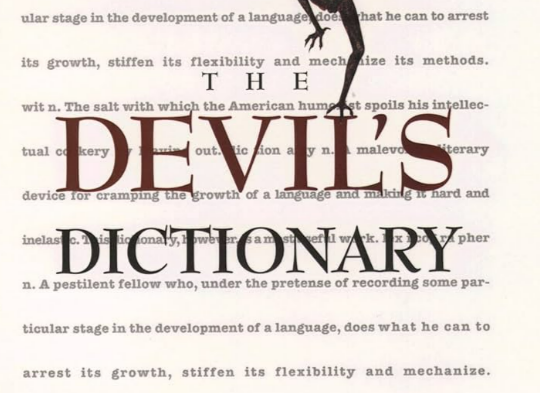Chapter E
byChapter E opens with a humorous yet insightful look at Eating, defined by Bierce as the successful coordination of many bodily functions, distinguishing between mere consumption and the true enjoyment of a meal. This contrast highlights how the physical act of nourishment often lacks the pleasure associated with fine dining. Through a witty anecdote about the gastronome Brillat-Savarin, Bierce sets the tone for his exploration of ordinary acts, revealing their deeper cultural and emotional layers. The entry underscores how much of human behavior is both mechanical and meaningful, reminding readers that even basic needs can be rich with complexity.
Eavesdropping is portrayed as an artful intrusion, a skill in secretly overhearing private conversations. Bierce captures the paradox of curiosity and invasion of privacy, showing how human nature compels individuals to seek knowledge at the expense of boundaries. This definition reflects broader themes about trust and secrecy in society, illustrating how gossip and hidden truths shape social dynamics. Meanwhile, Eccentricity is gently mocked as the desire to stand out, often manifesting in harmless oddities that society tolerates or even celebrates. Bierce uses these observations to question the thin line between individuality and social acceptance, pointing out that many celebrated quirks are merely tolerated eccentricities.
Moving into the realm of economics and biology, Bierce defines Economy with sharp irony, noting how frugality often clashes with human impulses to consume. His take highlights the tension between scarcity and desire, showing how economic behavior is less rational than idealized. Edible is cleverly described as anything alive that can be eaten by something else, offering a biological perspective on the food chain that underscores life’s interconnectedness and survival struggles. This simple definition carries a sobering reminder that nature operates on cycles of consumption and survival, often detached from human notions of morality.
The role of the Editor is captured in a satirical light, reflecting the paradox of those who both judge and create content. Bierce suggests editors wield power by shaping narratives, yet they are themselves constrained by the very material they manage. This duality exposes the complex influence of media gatekeepers in shaping public opinion and cultural production. Education is another term dissected with characteristic cynicism, portrayed not just as knowledge acquisition but as a process that reveals ignorance alongside wisdom. This ambivalence calls attention to the imperfect nature of learning systems and challenges the assumption that formal education guarantees enlightenment.
The personality of the Egotist is sketched as someone blinded by self-interest, incapable of seeing beyond their own perspective. Bierce’s definition exposes the social friction caused by excessive self-absorption and the difficulty of genuine empathy. Similarly, Enthusiasm is portrayed as a youthful, fleeting disease—an intense but temporary passion that often fades with experience. This view questions romanticized notions of zeal, suggesting that maturity tempers initial fervor with realism. Together, these entries critique human behavior with humor while uncovering the contradictions beneath everyday traits.
In the later part of the letter, Emancipation is depicted as a mere transfer of bondage—from external chains to the self—challenging the idea of true freedom. Bierce suggests that even liberation can be a form of control, emphasizing the complexity of autonomy. Eulogy is cynically defined as praise often reserved for the powerful or deceased, highlighting how respect can be selective and performative. His take on Executive points out the contradictions in authority figures, who command power yet are often entangled in bureaucracy and self-interest. Exhort is seen as urging others to action, usually for the benefit of the speaker, revealing the performative nature of leadership appeals.
Finally, Existence itself is characterized as a fleeting nightmare, capturing Bierce’s darkly philosophical view of life’s transient and often troubling nature. This somber reflection ties together the chapter’s themes of irony and skepticism, inviting readers to confront life’s complexities without illusions. Bierce’s definitions blend humor with profound insight, creating a tapestry of commentary that challenges assumptions about behavior, society, and the human condition. Through this witty and sardonic lexicon, he encourages a deeper, more critical engagement with the words and ideas that shape everyday understanding.

